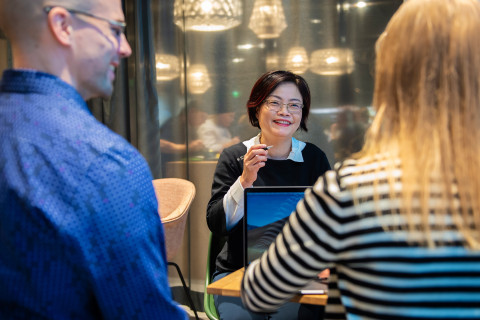Commitment to academic research goals and the simultaneous need to adapt to the temporal dimensions of business collaboration characterize the researchers' involvement in business cooperation, according to a recent study conducted at the University of Eastern Finland. The study examined the experiences and perceptions of researchers in the university's neuroscience research community (NEURO RC) regarding business collaboration aimed at finding new solutions for lifelong brain health.
The researcher-company collaboration was studied with the help of the theoretical concept of "societal entrepreneurship," which refers to entrepreneurially oriented activity carried out in collaboration with companies and focused on broad global challenges, such as an aging population.
The findings make visible differences in perspectives between researchers and businesses. Researchers understand the expectations that businesses have for collaboration, but at the same time, researchers are guided by their own academic goals, interests, and resources. However, even short discussions with businesses can steer research in directions that interest them.
The research produces new knowledge because previous studies often understand collaboration between universities and businesses solely as technical and economic activities aimed at achieving narrowly defined impacts. Entrepreneurially-oriented activities aimed at broader societal impacts, on the other hand, open up opportunities for a more diverse research community. The starting point for researchers is the pursuit of research interests and societal benefits in cooperation with companies in a way that serves all parties. Fourteen research communities at the University of Eastern Finland are excellent examples of this kind of cooperation. The research opens up new perspectives on how the activities of research communities can be strengthened through activities aiming at societal impact.
The study highlights two dimensions of neuroscientists' business collaboration.
The "Together and Apart" dimension describes collaboration relationships where the researchers' primary focus is on achieving academic goals. Researchers recognize the different interests of the collaborating parties and the role of related interactions as a prerequisite for successful collaboration.
The "Changing Pace" dimension refers to the temporal aspect of collaboration, where researchers found it important to recognize that plenty of specific time should be allocated for well-functioning business collaboration. The challenge lies in the unpredictability of the changing pace and rhythm of business collaboration, both in the short and long term.
The findings make visible two strategies, reported in previous studies, that guide researchers and businesses in collaboration. The "Fair Play" strategy emphasizes that both parties must be able to adhere to their own values, while the "Organic Dialogue" strategy involves maintaining a flexible and continuous dialogue between researchers and businesses.
The study demonstrates that the concept of "societal entrepreneurship" is needed when business collaboration involves goals beyond technical and economic aspirations.
The results are based on qualitative interviews conducted with researchers from the neuroscience research community (NEURO RC).
Publication:
Societal Entrepreneurship and University–Industry Collaboration: A Case Study of an Academic Research Community. Aromaa, E., Eriksson, P., Hirvonen, P., and Palo-oja O.-M.




